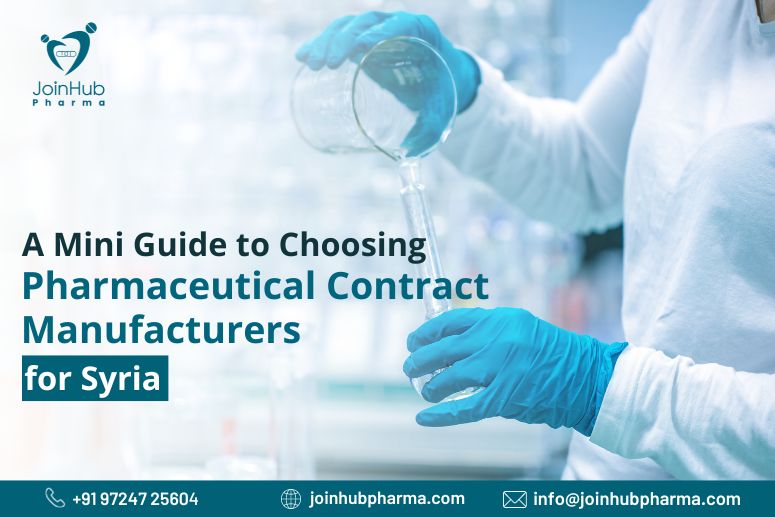Kenya’s pharmaceutical manufacturing sector is driven by robust regional and domestic demand. Despite challenges such as high input costs and expensive operational expenses, the industry continues to grow and attract investment, especially in the areas of vaccine production and generic medicines.
Despite its strong regional market presence, Kenya continues to import the majority of its medications. Similar to trends across Africa, the country’s pharmaceutical manufacturing sector remains heavily dependent on imported raw materials, including active pharmaceutical ingredients (APIs) and drug excipients, mainly sourced from India and China.
Kenya hosts several companies that produce raw materials for APIs; however, due to limited domestic capacity for API manufacturing, these materials are primarily exported. This reflects the current maturity level of the local pharmaceutical sector, which remains focused on producing basic, non-patented medicines and depends largely on technology transfer partnerships with international pharmaceutical companies.
Key Challenges of Kenya’s Pharmaceutical Manufacturing Sector:
Industry experts highlight several critical challenges facing Kenya’s pharmaceutical manufacturing sector. High costs of utilities such as water and electricity, expensive transportation, and reliance on imported packaging materials significantly increase production expenses. Additionally, there is a shortage of skilled labor, further complicating efficient manufacturing operations.
Quality control remains a major hurdle, preventing many domestic producers from scaling up to manufacture higher-grade medications, as they often fall short of meeting national and international quality standards. Compounding these issues is the widespread presence of unregistered pharmacies and the influx of counterfeit imported drugs, both of which undermine the growth and credibility of Kenya’s local pharmaceutical industry.
A Quality Standard is a Must in a Pharma Contract Manufacturing
“When selecting a contract manufacturer, quality standards should never be compromised. They are the backbone of credibility in the pharmaceutical industry.” — Dr. Jane Mwangi, Industry Expert.
The choice of a pharma manufacturing partner can significantly impact production quality and meeting regulatory requirements. Kenya, witnessing rapid growth in its pharmaceutical sector, seeks to ensure that collaboration with pharma contract manufacturers aligns with stringent quality standards.
In this blog post, we will explore the essential quality standards that Kenya prioritizes when selecting pharma contract manufacturing partners. By understanding these standards, stakeholders can make informed decisions to optimize their operations and enhance product integrity.
Understanding the Importance of Quality Standards in Pharma Contract Manufacturing
The pharmaceutical industry is heavily regulated and demands high standards at every stage of production. Quality assurance is not just a checkbox; it is a pivotal element that ensures the safety and efficacy of medications. In Kenya, where healthcare advancements are intertwined with economic growth, the focus on quality in pharma contract manufacturing is paramount. A reliable partner can help meet these quality standards, ultimately enhancing the market’s trust in pharmaceutical products.
1. Compliance with Regulatory Standards
The first critical aspect that Kenya looks for in pharma contract manufacturing partners is compliance with local and international regulatory standards. This includes adherence to the World Health Organization (WHO) guidelines, Good Manufacturing Practices (GMP), and local regulations set forth by the Pharmacy and Poisons Board of Kenya. Ensuring that manufacturing processes align with these standards not only guarantees product quality but also helps in maintaining market access.
2. Quality Control and Assurance Protocols
Quality control (QC) and quality assurance (QA) are vital components of any pharma contract manufacturing operation. Kenya expects its partners to employ rigorous QC methods throughout the production process. This includes everything from raw material inspection to in-process testing and final product validation. High-quality production processes should be supported by solid QA protocols. Companies that implement Continuous Quality Improvement (CQI) programs often stand out as preferred partners, signaling their commitment to maintaining superior quality.
3. Technical Expertise and Capabilities
Another significant factor is the technical expertise and capabilities of the pharma contract manufacturing partner. Kenya values manufacturers that have extensive experience in the specific types of formulations required, whether they are solid doses, liquids, or biologics. Moreover, the ability to up-scale production while maintaining quality is a crucial aspect. Engaging with partners equipped with advanced technology and skilled professionals can ensure that high-quality standards are met consistently.
4. Transparency and Collaboration
In the realm of pharma contract manufacturing, transparency in processes and collaboration between the contracting company and the manufacturing partner are essential. Kenya seeks partners who are willing to share pertinent information about their processes, as this builds trust and facilitates smoother cooperation. Open communication lines allow for real-time problem-solving and ensure that quality standards are upheld throughout the production timeline.
5. Reputation and Track Record
Finally, reputation and track record play a significant role in the selection process. Manufacturers who have established a history of delivering high-quality products within regulatory compliance are often preferred. Feedback from previous clients and case studies can serve as valuable indicators of a partner’s reliability. Thus, vetting potential pharma contract manufacturing partners through testimonials and references is crucial.
As Kenya’s pharmaceutical sector continues to grow, the emphasis on partnering with high-quality pharma contract manufacturing firms becomes increasingly important. By focusing on compliance with regulatory standards, implementing stringent quality control mechanisms, leveraging technical expertise, fostering transparency, and considering reputation, stakeholders can effectively navigate the complexities of pharma contract manufacturing.
Joinhub Pharma – Your Ideal Contract Manufacturing Partner For Kenya
JoinHub Pharma stands out as a leading pharmaceutical contract manufacturer for Kenya, committed to delivering high-quality, safe, and effective pharmaceutical products. Our manufacturing facility has been accredited by ISO 9001:2008 and HACCP certification. Our pharma product offerings comply with all regulatory standards and hold certifications such as WHO-GMP and EU GMP. With a transparent pricing structure and an efficient, diverse supply chain, we help healthcare companies scale their operations without the burden of in-house manufacturing.
Our Pharmaceutical Services include:
- Product manufacturing for medical devices, pharmaceuticals, and chemical products
- Designing, developing, and manufacturing customized products according to client requirements
- Quality management of all stages – from design through to production
- Packaging and labeling of products
- Custom pharma product manufacturing
Ready to partner with JoinHub Pharma? Get in touch with us today or email us at info@joinhubpharma.com to learn more about our pharmaceutical contract manufacturing services and how they can benefit your business.










